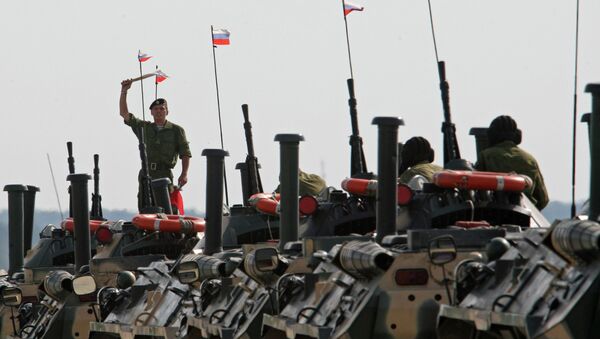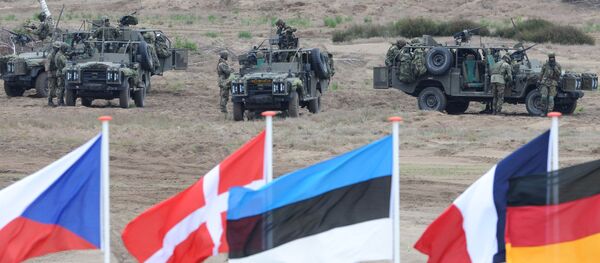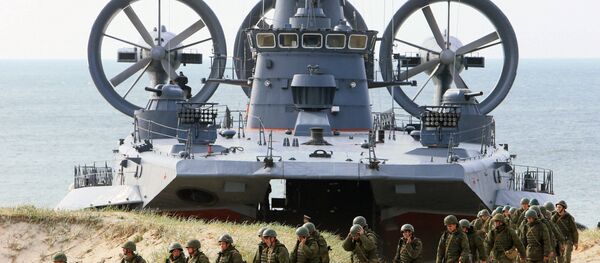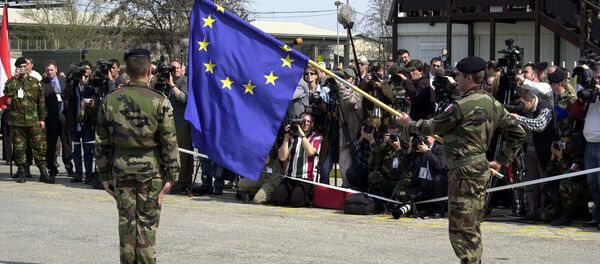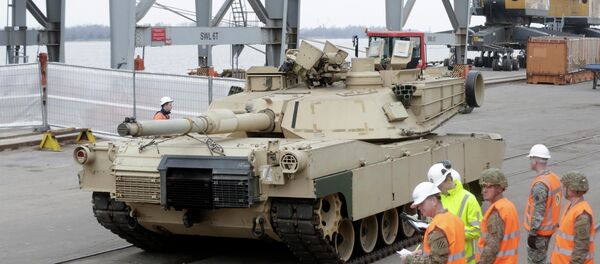NATO countries' 'Defense Schengen' concept, meant to further integrate new members into the alliance and to improve logistics to ensure the seamless passage of the bloc's troops throughout Europe, was conceived as a response to members' envy of the Russian military's ability to quickly transfer troops and equipment around Russia's western borders.
On Wednesday, at a meeting in Warsaw, the Estonian and Polish defense ministers confirmed that the two countries are actively working to ensure that the troop and equipment transfers of their NATO allies could be simplified. "We are working to ensure that each individual soldier will not require a decision at the political level to cross the border," Estonian Defense Minister Hannes Hansen said.
However, NATO's commanders have complained that these forces can be activated only in the event of an actual attack. Accordingly, officials have said that the bloc needs a 'Defense Schengen' to be able to quickly organize exercises.
In May, Lt. Gen. Ben Hodges, commanding general of United States Army Europe, complained that coordination for troop transfers between countries is a bureaucratic process that takes weeks. Accordingly, he grumbled, NATO's is not in a position to stage drills involving troops' sudden transfrer from one country to another without prior political approval by each individual member state.
At the same time, Hodges warned, Russia does not have that problem. "The Russians are able to move huge formations and lots of equipment a long distance very fast," he told the BBC in June. NATO, he added, should have such capabilities. "Three days' notification, we ought to be able to do that."
Of course, the commander didn't mention that the reason Russia does not face bureaucratic hassles in moving its troops is because it's moving them within its own borders, while NATO has become a bureaucratic monstrosity, which Russian Foreign Minister Sergei Lavrov recently suggested is matched only by the European Union.
Commenting on these sentiments, the Russian newspaper Vzglyad recalled that "it is well-known that fear of the 'threat from the East' has taken on a character of mass psychosis among the Baltic countries, especially Lithuania and Latvia." Grybauskaite herself, the paper added, "regularly frightens Lithuanians with suggestions that the Baltics face an imminent threat and must prepare to repel a Russian attack 'for at least three days' until assistance from NATO allies arrives."
Russian officials, naturally, have brushed off the Baltic politicians' fear-mongering. Last week, asked to comment on rumors that the Russian military was preparing to invade the Baltics, using nuclear weapons, President Vladimir Putin called such rumors "madness."
"I think all sober-minded people who really are involved in politics understand that the idea of a Russian threat to, for example, the Baltics is complete madness. Are we really about to fight NATO? How many people are there in the NATO countries? About 600 million, correct? There are 146 million people in Russia. Yes, we're the biggest nuclear power. But do you really think that we're about to conquer the Baltics using nuclear weapons? What is this madness?" Putin said, speaking to Bloomberg.
Speaking to the newspaper, Evgeny Krishtafovich, director of the Estonian Center for European Initiatives, suggested that "in a circumstance when there is no war officially, but an escalation of tensions in certain regions is taking place, it's necessary to respond to this not only using our national armed forces, but the forces of the alliance as well. The legal basis for this may need to be improved. Is Article 5 [on collective defense] enough? How can it be interpreted? Will it be necessary to use additional agreements?" These are the questions that need to be answered, the expert said.
In any case, 'Defense Schengen' would require a decision by the NATO Council, Krishtafovich added. This could be approved quickly enough, "since NATO is not the EU, and decisions are taken much more quickly; therefore, I do not see any political obstacles to its adoption within a reasonable timeframe."
Marko Mihkelson, the head of the Estonian parliament's commission on defense, told Vzglyad that a 'Defense Schengen' agreement would merely be a technical issue, since the transit of soldiers and equipment across NATO countries' borders is not considered a violation of sovereignty, even if it does require political permission.
At the same time, Melkonov suggested that many Latvians are much more concerned about the country's economic problems than the mythical threat from the east. These problems include the loss of Russian markets for Latvian fish and milk products, and issues related with the country's declining population. The country has also lost nearly 630,000 people, or over 23% of its population, since the collapse of the Soviet Union (and half of them since its entry into the EU).
Finally, Vladimir Komoedov, chairman of the Russian Duma's Committee on Defense, suggested that Baltic and Polish officials look like they have nothing better to do than to conjure up the Russian threat. "Russia doesn't need them. Why are they doing this? Let them move their pawns on maps and across their territory…Russia does not have any plans to attack anyone; it has its own issues to think about."

